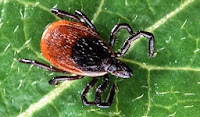Here is an important story worth re-telling. A while back, country music legend Kris Kristofferson was among many Americans misdiagnosed with Alzheimer’s. After years on medication for Alzheimer’s, it turned out he was misdiagnosed and really had Lyme disease. After a few weeks of treatment, his memory was mostly back.
“All of a sudden he was back,” Lisa Kristofferson told Rolling Stone at the time. “There are still bad days. [But] some days he’s perfectly normal and it’s easy to forget that he is even battling anything.”
When a doctor tested Kristofferson for Lyme disease, the test came back positive. After three weeks of treatment – along with dropping his Alzheimer’s and depression meds – memory came back.
Imitating Alzheimer’s
Conditions that can cause symptoms that look like Alzheimer’s, but are far easier to reverse, include:
- Severe anemia
- Thyroid disorders
- Depression
- NPH (Normal Pressure Hydrocephalus), which appears in as many as 5% of Alzheimer’s cases
- Lyme disease
Life with Lyme Disease
Kristofferson’s wife believes that the singer must have been infected with Lyme disease by a tick bite when he was in Vermont, crawling around the woods while filming the movie “Disappearances,” which was released in 2006.
Clouding the problem is that people who have Lyme disease can test negative for it until their body builds up antibodies. But people who don’t have it can also test positive for other reasons, including autoimmune disorders, which is why the CDC recommends a two-tier testing process.
Regardless, the change in diagnosis – and treatment – has made a huge difference in Kristofferson’s day-to-day life, as well as his future plans. The singer, who will turn 80 this month, recently traveled to Canada to record with fellow legends Gordon Lightfoot and Ronnie Hawkins, and also plays the lead in the movie “Traded,” which will be released this week.
Lyme Disease in the USA
Dr. Kerry Clark, associate professor of public health at the University of North Florida in Jacksonville, and his colleagues have found additional cases of Lyme disease in patients from several states in the southeastern U.S. These cases include two additional Lyme disease Borrelia species recently identified in patients in Florida and Georgia.
Overall, 42 percent of 215 patients from southern states tested positive for some Lyme Borrelia species. More than 90 cases of Lyme infection were confirmed among patients from Florida, Georgia, North Carolina, Texas and Virginia. Of these southern cases, 69 percent were found to have infection with B. burgdorferi, 22 percent with B. americana and 3 percent with B. andersonii.
“For years, medical practitioners and the public have been told that Lyme disease is rare to nonexistent in the southern United States. Our earlier research demonstrated that Lyme disease bacteria were present in animals and ticks in our region,” said Clark. “The more recent evidence shows that the disease is also present in human patients in the South, and suggests that it’s common among patients presenting with signs and symptoms consistent with the clinical presentation of Lyme disease recognized in the northeastern part of the country.”
His groundbreaking paper, “Geographical and Genospecies Distribution of Borrelia burgdorferi sensu lato DNA Detected in Humans in the USA,” was published in the Journal of Medical Microbiology in February. Dr. Brian Leydet in the Department of Pathobiological Sciences at Louisiana State University and Dr. Clifford Threlkeld of Ameripath Central Florida collaborated with Clark in his latest research.
The findings are significant for several reasons:
- They provide additional evidence that multiple Lyme Borrelia species are associated with human disease in the U.S., similar to the situation in Europe.
- The findings expand the geographic area where Lyme disease should be considered by medical providers and citizens alike.
- This research suggests that human cases of Lyme disease in the southern U.S. may be much more common than previously recognized.
Prior to Clark’s previously published paper in 2013, only one or two Lyme bacterial species, Borrelia burgdorferi and B. bissettii, were recognized to cause disease in North America. Current testing methods and interpretation criteria, designed to detect just one species (B. burgdorferi), may explain many of the complaints involving the unreliability of Lyme disease tests in the U.S.
Most of the patients included in Clark’s study were suffering from a variety of chronic health problems, such as fatigue, headaches, muscle and joint pain and cognitive dysfunction. As a result, Clark’s research may help millions of chronically ill people living in areas where Lyme disease wasn’t previously recognized. Called “The Great Imitator,” Lyme disease is often mistaken for illnesses such as fibromyalgia, chronic fatigue syndrome, lupus, multiple sclerosis, rheumatoid arthritis, Lou Gehrig’s disease (ALS), Parkinson’s, ADHD and Alzheimer’s.
More Information:
Clark’s research is supported in part by funding from the Florida Lyme Disease Association (formerly the Northeast Florida Lyme Association: http://www.flda.org), Georgia Lyme Disease Association (http://www.georgialymedisease.org) and the Alabama Lyme Disease Association (http://www.alabamalymedisease.org). Additionally, he has received multiple research project grants from UNF over the years in support of his Lyme disease research.
“These groups have been significant in raising funds to support my research over the past several years. Without their support, I wouldn’t be able to continue this work. This shows that community groups and scientists can collaborate effectively to create changes to improve public health, both locally and regionally,” said Clark.
In addition to research and teaching, Clark serves as a board member for the FLDA, with whom he collaborates in Lyme disease education and awareness activities. On May 17, Clark and other guests will speak at the first Lyme in the South Music Fest at River City Brewing Company in downtown Jacksonville, Fla. This event is a benefit concert and festival dedicated to the prevention, awareness and cure of Lyme disease and other tick-borne illnesses that have become the fastest-growing infectious diseases in the country. Proceeds from this event will provide further support for Clark’s research program. Learn more about the event at http://www.lymeinthesouth.com
UNF, a nationally ranked university located on an environmentally beautiful campus, offers students who are dedicated to enriching the lives of others the opportunity to build their own futures through a well-rounded education.
Sources:
- University of North Florida
- Fox News
- NewsMax Health













This is amazing news!!! I hope doctors will test for this prior to making diagnosis.
I was heartbroken when I met Kris at Summer NAMM Show the year he received the American Eagle Award for his contribution to music & he appeared to have Dementia
When I shook his hand & thanked him for his music he put his hand up to the side of his head & made a motion that indicated he didn't understand me.
When I finally read that it was a mis-diagnosis I was happy for him.